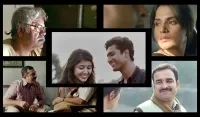It has been ten years since ‘Masaan’ slipped in quite unnoticed, and yet it still survives in memories, in discussions, and in hearts.
It was never the sort of movie that cried out for attention. No aggressive songs, no over-the-top heroes, no cliffhanger plot twists. But what it did possess was something unique; truth, delicacy, and a profound sense of understanding pain, love, and dignity.
When ‘Masaan’ released on July 24, 2015, it was like a soothing breeze amidst a tempest. When Bollywood was brimming with grandeur at the moment, this small Varanasi movie shared the tales of individuals who are always overlooked; individuals who dwell in subdued sorrow, bearing heavy histories, and having the audacity to dream in a world that continues to hold them back.
It was not a matter of presenting something spectacular. It was simply being truthful.
Directed by Neeraj Ghaywan and written by Varun Grover, ‘Masaan’ unraveled itself through two tales happening concurrently. The first was about Devi, a young woman whose intimate moment with her boyfriend becomes a public calamity. Following a police raid, her boyfriend takes his own life and leaves her to suffer not just personal grief but the bitter censure of society as well.
Rather than support, Devi is shamed, blamed, and blackmailed. In silence, there was resistance. In quiet stare, there was pain, but also strength.
For instance, there is a character in the movie who plays Devi’s colleague. He asks her, “Degi kya? Usko bhi toh diya thaa…” (Translation: “Will you have sex with me too? You slept with that other guy as well.”) Is this what Judith Butler calls the ‘performativity of gender’? Society forces women to perform ‘virtue’ and ‘honour’, and punishes any deviation. And the punishment can be of any form!
The second tale was that of Deepak, a Dom caste boy, whose family cremates corpses by the Ganges. Deepak, played sublimely by Vicky Kaushal in his first role, was an optimist. He yearned for more out of life; education, love, respect. When he fell in love with Shaalu, a higher-caste girl, it was chaste and hopeful.
But caste, like a shadow, pursued him wherever he went. And when tragedy entered his life as well, it almost destroyed him. But he too persisted; not with rebelliousness, but with quiet strength.
Both Deepak and Devi were struggling against intangible walls: caste, gender, honour, shame. They were not seeking to change the world. They merely wished to live freely, love openly, and grieve quietly.
The strength of ‘Masaan’ was that it never mythified them as symbols or heroes. It allowed them to be human. And that made it so powerful. The turbulence lived within them, but it reflected what Gramsci would call ‘counter-hegemony’, subtly.
The movie was a starting point for several. It provided Vicky Kaushal with his first leading role, and viewers witnessed a new type of hero: raw, exposed, genuine. It made Neeraj Ghaywan a voice to be reckoned with, a person who would create films that actually mirror Indian society.
The movie also brought India to the world, and it won its awards at the Cannes Film Festival, and won hearts from critics and audiences everywhere.
But what’s most unique about ‘Masaan’ isn’t the awards, or the criticism. It’s the sense it left behind. The manner in which it sat silently in the minds of people. The manner in which its pain became relatable, and its hope conceivable.
Even a decade later, ‘Masaan’ is relevant. Caste-based atrocities are rampant. Acceptance of women as full human beings still eludes them. Dreams continue to clash with tradition for young people. Nothing really changed (and, will it?)
And that’s precisely the reason why the movie continues to be significant. It didn’t attempt to change anything. It just presented things as they are, but with love and empathy.
‘Masaan’ was a whisper amidst a cacophony of noises. And sometimes, it is the whisper that lingers the longest. A film like this does not grow old. It matures. It lingers. It quietly stands by in the background, until one day, when you’re prepared to feel again deeply, you recall it.
And just like that aching melody that plays through the frames, it leaves behind a feeling hard to describe. Like they say, “Mann kasturi re, jag dasturi re, baat hui na poori re!”
